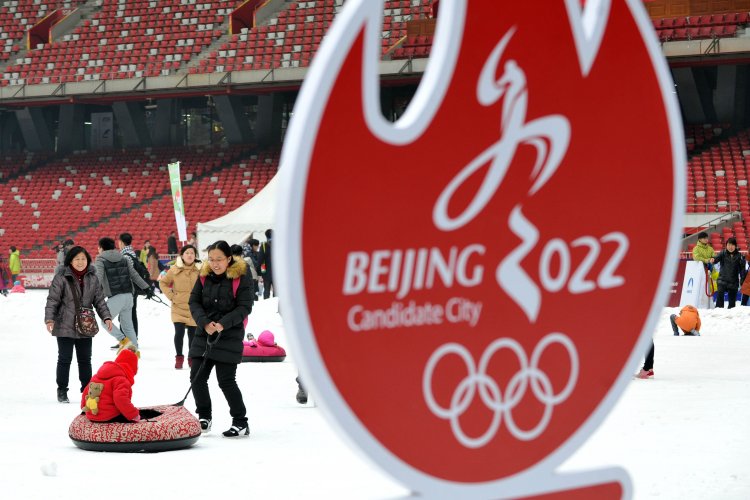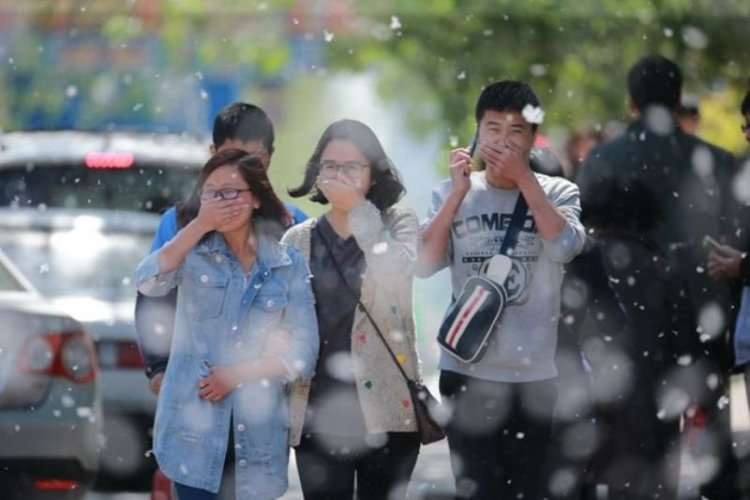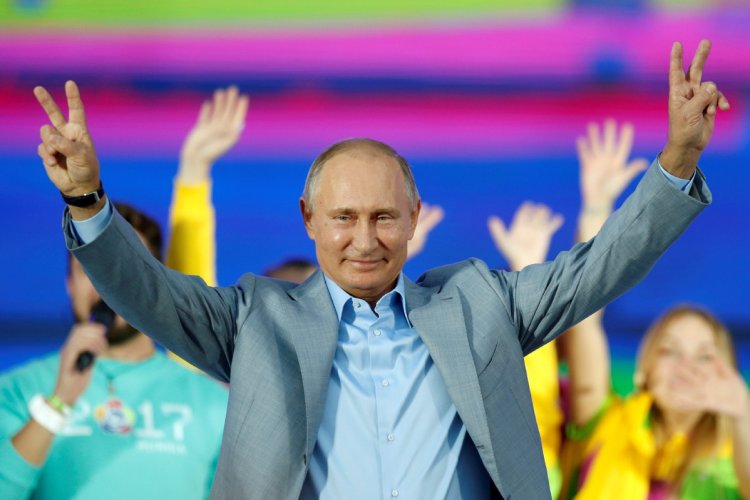You Heard It Here First: Beijing Will Host the 2022 Winter Olympic Games
The afterglow of the Winter Olympics is already starting to fade (except for Canadians) and people are already forgetting how to say "Sochi." Seahawks fans are still partying in Seattle after their Super Bowl win, and in just another week from now, curling will be a joke again until early February 2018 when Olympic fever starts to grip us again ahead of the games in nearby Pyeongchang, South Korea.
Beijingers will remember the Sochi games as opening on what might be the only snowy day of the 2014 winter, and concluding amidst alert-level air pollution. Not exactly the image the city wanted to project as it bids to host the 2022 Winter Olympic Games, in conjunction with nearby Zhangjiakou.
Nevertheless, we're going out on a limb for the city we love: Beijing will win the bid and become the first city ever to host both a summer and winter games.
Not only will Beijing win these Olympics, Beijing must win these Olympics. 2008 went well for Beijing, but unlike Barcelona and Seoul, who transformed their cities and their reputations by hosting the games, Beijing's Olympic legacy has been a few new subway lines and a bunch of disused sports stadiums. While the 2008 games were by most measures a resounding success, Beijing still felt some shame when the air wasn't exactly pristine. The '08 Summer Games made no long-term dent in cleaning up the city's air, and we're sure the powers-that-be will not make the same mistake twice.
Hosting the '22 games will give the city the second chance it needs, and with the vast majority of the citizenry now sensitized to the dangers of air pollution and officials clamoring for long-term change, another shot at the Olympics is likely to be just far away enough and provide just motivation enough to assure that real change has a chance to occur and take root.
Sure, there will be no natural snow (and precious little local water to make it with), but no natural precipitation didn't put a dent in the Sochi games, and water importation for snow-making is a problem Beijing can solve.
Perhaps best of all, the city has most of the facilities already built and a national cash reserve to easily build whatever else it needs.
While oddsmakers put Beijing slightly behind Oslo and even with Almaty in the quest to host the game, we below handicap the field versus other potential host cities and tell you why Beijing will win:
1. Stockholm, Sweden. This one is easy. Stockholm has already dropped out in the face of public opposition to hosting the Games. One down...
2. Oslo, Norway. Norway had a big hit with the 1994 Games in Lillehammer, but is having similar problems to Stockholm, with a majority of Norwegians against hosting the Olympics again, mostly due to concerns over the expenditure. Oslo hosted the 1952 Winter Olympics.
3. Lviv, Ukraine. Yeah, uh, they're having a few problems in Ukraine these days. Good for them if they continue with the bid, but the International Olympic Committee (IOC) does not heart political instability.
4. Almaty, Kazakhstan. God Almaty – the Games will not be in Kazakhstan. Sure, it would be a first to hold an Olympics in a Central Asian country, and there's quite a bit of oil money sloshing around to fund it, but as we saw with the 2000 Olympics, which went to Sydney despite a strong bid from Beijing, the IOC will choose an old favorite over a strong newcomer (otherwise why go back to London?). Maybe someday, but not 2022.
5. Krakow, Poland. This is the one city that could give Beijing a speed-skate for the money. Poland co-hosted a successful Euro 2012 soccer tournament, but that event, like the 2022 Winter Olympics, would be a cross-border shared bid, with a village in Slovakia.
Forget pollution, forget snow. Beijing has one big strike against it as a potential candidate city: the 2018 Games will take place in neighboring South Korea, and the 2020 Summer Games will be in Tokyo. It's not impossible, but that would put three Olympic events in a row on a big time difference from the United States. Why is that important? Because American broadcaster NBC pays for about 20 percent of the Games by itself in exchange for television rights, which means they want American audiences, who will support American advertisers, to be able to watch as many events as possible live. And with a 12-hour difference between China and the US East Coast, that makes for mighty tough live viewing.
Still, no nation has demonstrated its ability to move heaven and earth for a mass athletic event like China did in 2008. And let's face it: you've been humming Beijing Huanying Ni (Beijing Welcomes You) on and off since August 2008 anyway. Beijing 2008 was a wonderful, transformational experience for the city; Beijing/Zhangjiakou 2022 would do wonders for a capital in need of a shot in the arm.
Photo: Daily Telegraph
Related stories :
Comments
New comments are displayed first.Comments
![]() admin
Submitted by Guest on Mon, 08/03/2015 - 11:45 Permalink
admin
Submitted by Guest on Mon, 08/03/2015 - 11:45 Permalink
Re: You Heard It Here First: Beijing Will Host the 2022...
For the record: We called it. Beijing Wins Bid to Host 2022 Olympic Winter Games
![]() dreyermark
Submitted by Guest on Mon, 03/03/2014 - 17:39 Permalink
dreyermark
Submitted by Guest on Mon, 03/03/2014 - 17:39 Permalink
Re: You Heard It Here First: Beijing Will Host the 2022...
admin, I love your optimism but don't share it. The Chinese Academy for Environmental Planning says it will cost $176 billion to clean up air pollution in China; last month the government set up a fund of $1.65 billion to do just that.
Note the decimal point...
![]() britomart
Submitted by Guest on Mon, 03/03/2014 - 15:15 Permalink
britomart
Submitted by Guest on Mon, 03/03/2014 - 15:15 Permalink
Re: You Heard It Here First: Beijing Will Host the 2022...
"will be able to" = "will" ??
![]() admin
Submitted by Guest on Mon, 03/03/2014 - 13:35 Permalink
admin
Submitted by Guest on Mon, 03/03/2014 - 13:35 Permalink
Re: You Heard It Here First: Beijing Will Host the 2022...
nah, there will be real change if they win this bid.
At the time the summer olympic bid was won (2001), the average Beijinger was:
-- only concerned about sandstorms in terms of pollution, perhaps coal dust
-- Had probably never heard of "PM" anything and certainly did not own an IQ Air or a face mask
-- Was not high on the Maslow's Heirarchy of Needs, aka cared much more about making money than quality of life
-- not aware that their city was the laughingstock of planet earth in terms of air quality
-- was certainly far less knowlegeable of the long-term effects of air pollution.
This goes for planning officials as well.
And the city government at the time was only measuring PM 10, and in fact that has declined over the past decade (you know the old adage, you can't improve what you can't measure).
Now that they are measuring PM 2.5, they will be able to reduce it in the coming 8 years.
This will happen without the Olympics, but likely will be accelerated with it. Imagine the PR boost Beijing would receive from a blue-sky winter olympics. Something on this scale is the only thing that will change the worldwide perceptions people now have of this city.
![]() britomart
Submitted by Guest on Mon, 03/03/2014 - 11:19 Permalink
britomart
Submitted by Guest on Mon, 03/03/2014 - 11:19 Permalink
Re: You Heard It Here First: Beijing Will Host the 2022...
Agree... 2008 Olympics made not a smidgen of long-term change in Beijing's air pollution. Six years out, and it's nearly twice as bad as it was prior to the Olympics.
If anything, the post-Olympic excitement over international recognition has spurred the powers-that-be to give carte blanche to anything that might spur the economy onward. Which means factories continue to pump out poisons, paying only slap-on-the-wrist fines, way cheaper than installing the legally required equipment to clean their factories' output. So unless the authorities can figure out how to keep the the wind from blowing up from the south, it will continue to drift up here for us to enjoy. (Can't imagine the misery of the poor people living near any of those factories.) I'm hoping that they'll shut down a few factories for the meetings in town this week. Doesn't look promising so far, though.
![]() dreyermark
Submitted by Guest on Mon, 03/03/2014 - 10:34 Permalink
dreyermark
Submitted by Guest on Mon, 03/03/2014 - 10:34 Permalink
Re: You Heard It Here First: Beijing Will Host the 2022...
The premise here seems to be that the Olympics would miraculously rid Beijing of pollution. As much as we'd all love that to happen, there is no quick fix (otherwise we'd have seen it). The authorities will just hope and pray that the weather is like today and not like yesterday. Remember, the events in Beijing would all be indoors (unlike at the Summer Olympics), and the snow events would be up in the mountains - hopefully clear of the smog anyway.
By the way, curling will pop up again a little earlier than 2018: Beijing hosts the men's world championships which begin next month. Given the success of the men's team in Sochi, expect to see some serious coverage on CCTV.
While the Bird's Nest is criminally underused, not all the Olympic venues are - the Water Cube gets plenty of action, the Tennis Center hosts the China Open, Wukesong/Mastercard hosts plenty of events, and some of the other newly built venues are now university sports complexes. Also, interesting description of "a few new subway lines". Since the Olympics were awarded to Beijing, 15 new lines have opened!
I do agree with you, however, that Beijing has a real chance of winning. I think the bid was initially more of a set-up bid for 2026 or 2030 (since many recent Olympics have been awarded to a city at the second or third time of asking), the bid team now realizes they could win it on their first time and Chinese officials were pushing the bid in Sochi.
Don't discount Almaty just because you haven't heard of it - Pyeongchang wasn't exactly a household name either. Almaty hosted the 2011 Winter Asian Games and did a find job, it will also hold the 2017 Winter Universiade (ie most venues are already in place) and then of course there's the oil money. I still think Oslo's low-cost bid will find the support it needs should it want to - and the IOC will do everything it can to avoid a third straight Asian Olympics - but Beijing is very real contender. It just won't make any difference to the pollution here.
![]() charlesliu
Submitted by Guest on Wed, 02/26/2014 - 16:12 Permalink
charlesliu
Submitted by Guest on Wed, 02/26/2014 - 16:12 Permalink
Re: You Heard It Here First: Beijing Will Host the 2022...
More than anything, I'm thinking of the benefits that can come with another Olympics
such as subway expansion
Monorail.
Monorail.
Monorail.
![]() Steven Schwankert
Submitted by Guest on Wed, 02/26/2014 - 14:20 Permalink
Steven Schwankert
Submitted by Guest on Wed, 02/26/2014 - 14:20 Permalink
Re: You Heard It Here First: Beijing Will Host the 2022...
Mtnerror, well stated. More than anything, I'm thinking of the benefits that can come with another Olympics, as well as what won't happen if it doesn't. Beijing very likely delayed a lot of construction projects -- such as subway expansion -- that probably would have happened in the mid-1990s but weren't undertaken since Sydney was the 2000 host.
![]() mtnerror
Submitted by Guest on Wed, 02/26/2014 - 13:55 Permalink
mtnerror
Submitted by Guest on Wed, 02/26/2014 - 13:55 Permalink
Re: You Heard It Here First: Beijing Will Host the 2022...
Beijing, incl. the powers-that-be and its citizens, permanent residents, and frequent visitors, need to abandon the thought that supposed gains can only come to fruition by all that's associated with hosting an int'l event, but rather looking insular at the needs the aforementioned gropus all have -- and the wants for tomorrow they all have. If a child only cleans up their room when his out-of-town cousins visit, he is not a tidy child. He's a child that for 51 weeks a year is a slob but is all too keen to "impress."
![]() charlesliu
Submitted by Guest on Wed, 02/26/2014 - 13:44 Permalink
charlesliu
Submitted by Guest on Wed, 02/26/2014 - 13:44 Permalink
Re: You Heard It Here First: Beijing Will Host the 2022...
I won't disagree with the esteemed author on whether Beijing should or will be awarded the 2022 Winter Olympics. I will say that being granted the right to host the games will be a bad thing:
1) For some reason, the 2008 Olympic torch relay went through many international world cities. The backlash against China was enormous. Because of reasons. Hosting another Olympics won't raise respect for the country, especially when...
2) This will just be viewed as another act of corruption and cronism. Sure, that didn't dampen efforts for some summer resort town that doesn't receive a flake of snow and has seen costs rise exponentially due to these very reasons. If China wants respect, it should prove its detractors wrong, not prove them right. And...
3) As stated, there is no legacy of the 2008 Olympics remaining. You can list all the things that were promised, but didn't happen: air pollution, internet freedoms, a passionate dislike for prizes without bells attached.
If the 2022 Olympics get awarded to BJ Town, then there will exist a definite legacy: that a Chinese Olympics will ensure another Olympics, thus ensuring we get to hear the same song and dance all over again so that we may forget later on just in time to get excited about curling once again.
Validate your mobile phone number to post comments.






